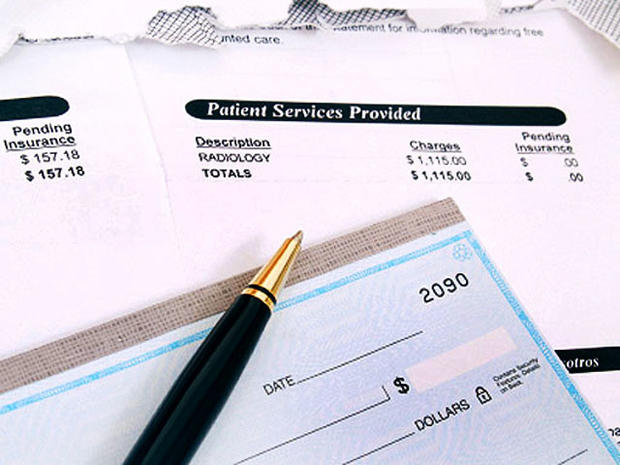10 new ways to save $$$ on medical bills
Ever bought a new car or another big-ticket item? Then you probably know a bit about bargaining. But did you know it's often possible to negotiate lower medical bills? In a recent survey, Consumer Reports found that only 31 percent of Americans haggle with doctors over medical bills but that 93 percent of those who did were successful - with more than a third of those saving more than $100.
Whether or not you have medical insurance, you'll benefit if you take time to learn some simple ways to bargain with your doctor. Keep clicking as Consumer Reports medical advisor Dr. Orly Avitzur shares 10 expert tips...
Deal with the decision maker
Find out who at the doctor's practice is in charge of billing decisions. It's probably not the friendly receptionist but the office manager. That's the person to approach about getting a discount. If you've lost your job or health benefits, be sure to let him/her know. In my own practice, I often extend discounts to patients in need. So do other doctors I know.
Find out the real cost
Just as knowing the "blue book" value of a used car helps when you buy or sell a car, it's easier to negotiate lower fees on medical care when you know the going rates for these services. To get an idea of how much hospitals and doctors typically charge, try a service like Healthcare Blue Book or New Choice Health. Fees doctors and hospitals charge patients can be up to 10 times higher than the fees insurance companies pay them for the same treatments. But you won't have the bargaining power unless you know that going in to the negotiations.
Look for less costly alternatives
Generic drugs are only one obvious way you can cut your medical bills - they're just as effective as brand-name drugs but cost a fraction of the cost. You can also save money by asking your doctor if recommended diagnostic tests really are medically necessary. Some doctors are so fearful of being sued for "missing something" that they order all sorts of costly tests when "watchful waiting" is a reasonable approach. If you do need the test, mention any financial hardship - and the doctor may give you a discount.
Request an itemized bill
Preparing for plastic surgery or another elective procedure? Ask for an itemized list of all potential charges - not just what the surgeon will charge but what you'll pay at the hospital or outpatient clinic where the procedure takes place (which often far exceeds the doctor's charges). Shop around, and offer what you think is a fair price.
Don't be shy
What does it take to be an effective bargainer? First, you have to be assertive enough to let the doctor know you want to pay less. But that doesn't mean being rude or overly demanding - a smile is often harder to resist than tough talk. If possible, negotiate in person rather than via email or over the phone. And never demand a discount or issue an ultimatum.
Offer to pay up front
Doctors may be more likely to dicker if you agree to pay at least a portion of fees up front - before the service is rendered. Similarly, some doctors may extend a discount if you pay in cash, so that they can avoid credit card transaction fees. Ask.
Review bills carefully
Even if you didn't try to negotiate before the fact, you may be able to get a discount after service is rendered. The key here is to scrutinize the bill. You might uncover an error. Even if you don't, you might discover that some items - especially those not covered by insurance - are open for discussion. You may also find that even though a hospital where you received treatment was "in network," certain providers or services were out of network. That's happened to me several times - and each time I've been able to get the fees reduced.
Stick to a payment plan
Having trouble paying a medical bill? Make it clear to the hospital or medical office's billing department that you're willing to work toward a resolution. Agree on how much you can pay and how often, and you may find that you'll get a break on the overall bill - since there will be no need for the hospital or doctor to pay a collection agency. Just be sure you make the payments on time, as agreed.
Don't go it alone
If you're faced with complicated medical bills full of cryptic fees, consider hiring a medical cost advocate or professional negotiator. These professionals may be able to settle disputes over coverage in your favor. For more information, Dr. Avitzur recommends INSNET or Medical Cost Advocate. You'll pay a fee, but it might be a lot cheaper than going it alone.
Refuse to pay for medical errors
A final word of caution: make sure you have not been billed for any medical errors. Did you acquire a urinary tract infection during a hospital stay? Were you given the wrong medicine, or the right medicine at the wrong dosage? Did a mistake cause your stay in the hospital to be extended? Medical errors are, unfortunately, all too common in hospitals. But it's bad enough to be victimized by a mistake. You shouldn't have to pay for it.










